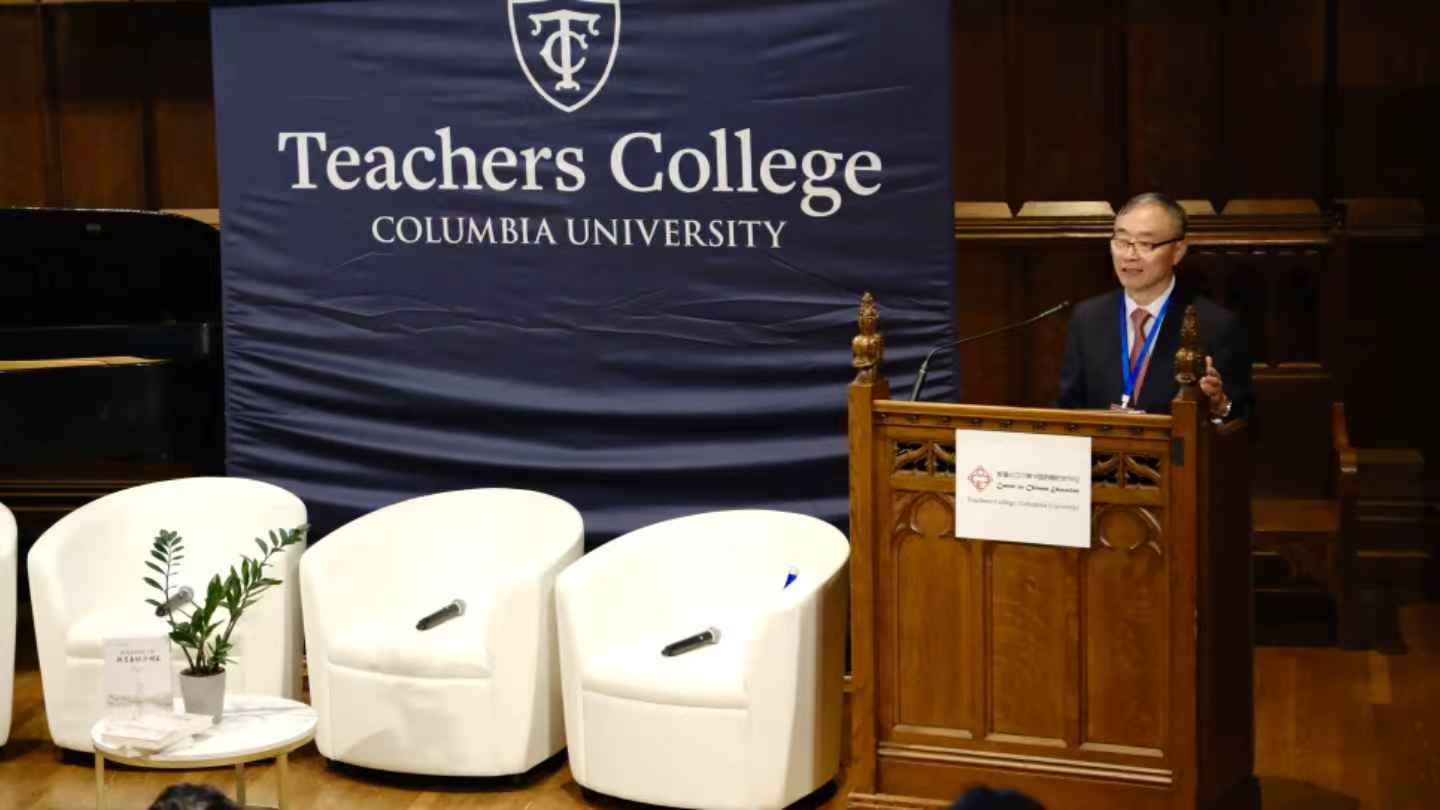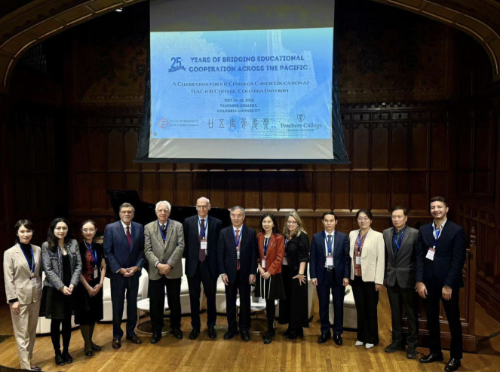Session 2 (Monday, October 13, 2025)
Book Launch: Education and Economic Growth in the Specific Institutional Context of China
In the afternoon, Professor Min presented his new book at Milbank Chapel. Drawing on over two decades of empirical research, he discussed how education supports high-quality development through human capital formation, technological diffusion, industrial upgrading, regional coordination, and social equity. He recommended continuing education reform and lifelong learning through enhanced cooperation among schools, industries, and governments. Drawing on more than twenty empirical studies, Professor Min demonstrated how education serves as a “powerful engine” for high-quality development through human capital accumulation, technological diffusion, industrial upgrading, regional coordination, and enhanced equity of opportunity. At the policy level, he recommended advancing education reform and improving quality assurance, refining talent development and evaluation mechanisms, strengthening the application of digitalization and artificial intelligence in teaching and governance, and deepening collaboration among schools, local governments, and industry to build a lifelong learning system connecting basic, higher, and continuing education.



Panel Discussion: International Perspectives on Education and National Development
A roundtable discussion followed, featuring Prof. Weifang Min (Peking University), Dean Kai Jiang (Peking University), Prof. Qiuheng Shi (Xiamen University), Prof. Emeritus Henry Levin (Teachers College, Columbia University), Prof. Dong Guo (Columbia University), and Prof. Mike Johanek (Teachers College, Columbia University). The discussion addressed topics including comparative education, education economics, higher education governance, teacher development, educational equity, digital literacy, and AI education, highlighting the long-term link between national competitiveness and human capital.
The panel discussion centered on the relationship between education and national development, bringing together distinguished scholars in higher education governance, educational economics, sustainability studies, and comparative education. Speakers examined China’s higher education reforms, talent cultivation strategies, international partnerships, and the role of universities in driving innovation and economic transformation. They emphasized the need for high-quality research, cross-border collaboration, and evidence-based policy to strengthen university governance, enhance teaching and research capacity, and support long-term competitiveness.
A recurring theme across presentations was the importance of cultivating global vision and leadership, fostering social equity through education, and advancing digital literacy and AI competencies. Panelists also reflected on demographic challenges, labor force sustainability, and the impact of international academic exchange—including the contributions of Chinese scholars returning from abroad to strengthen Sino-U.S. cooperation. Collectively, the session highlighted the significance of education as a strategic driver of national development and global engagement. It underscored that collaboration, openness, and mutual learning remain essential for building world-class universities and shaping future generations equipped to address global challenges.

